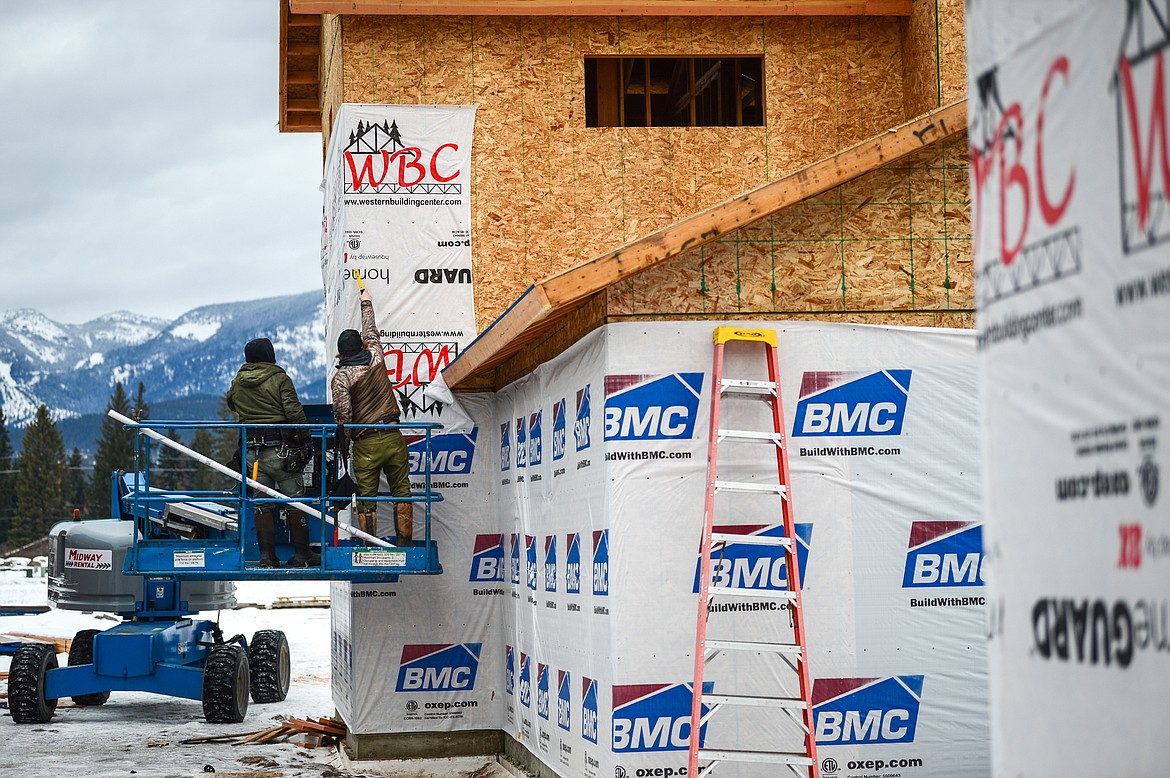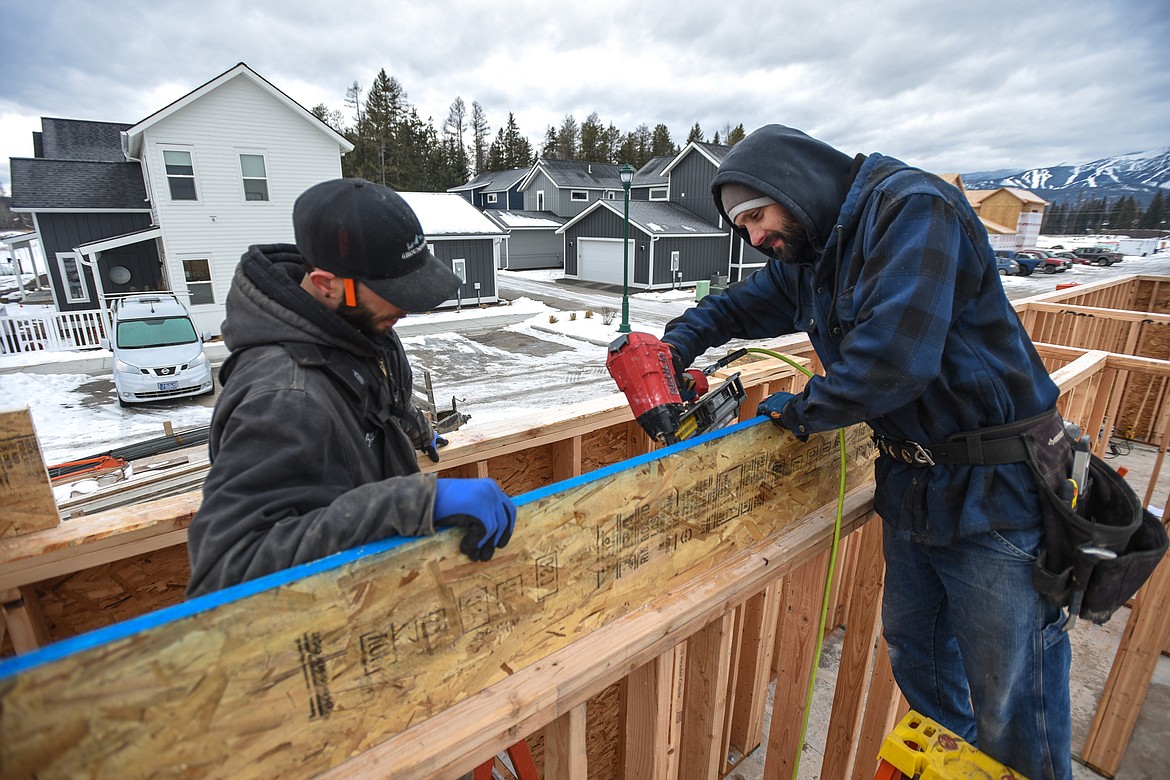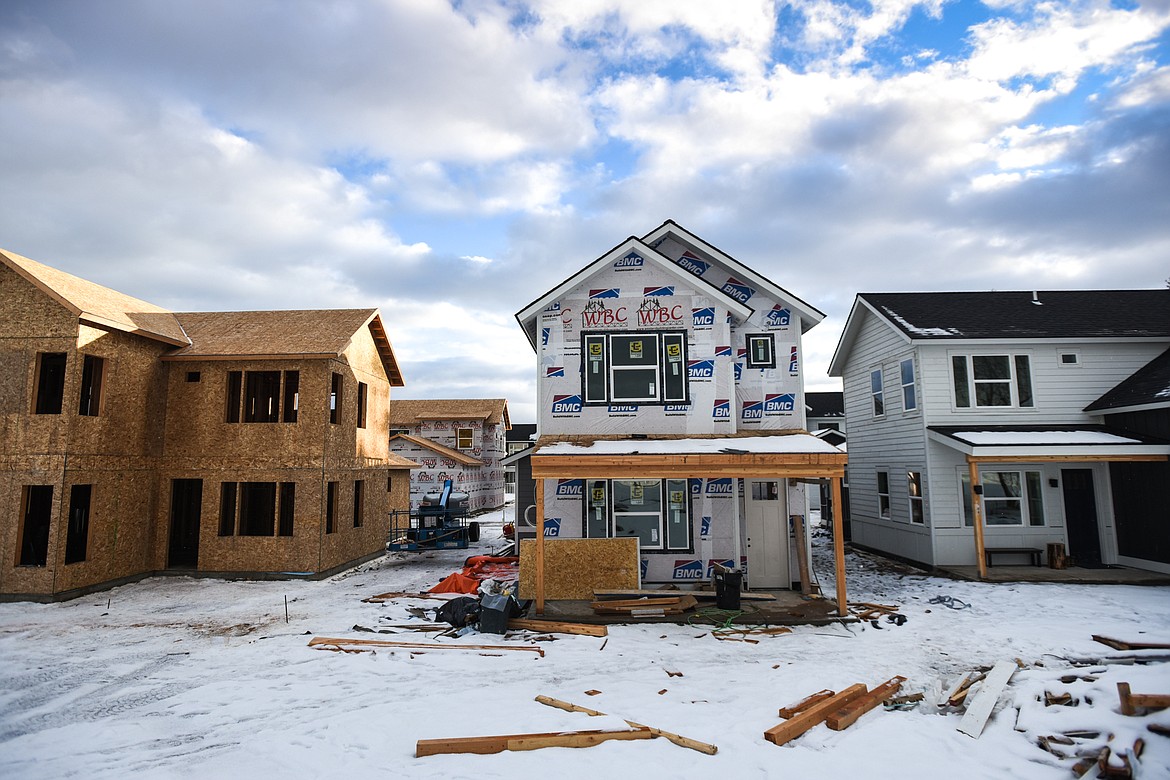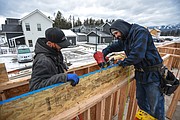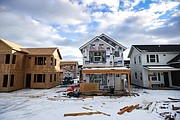Bill would eliminate Whitefish affordable-housing program
The problem is clear: Whitefish has a dearth of housing options that the city's average worker can afford, forcing many to buy or rent in neighboring communities.
The solution is now a matter of debate in the Montana Legislature, where Whitefish leaders spoke up this week to defend a city ordinance intended to keep some home prices from ballooning to unattainable levels.
A bill sponsored by House Majority Leader Sue Vinton, R-Billings, would prohibit cities from requiring developers to dedicate land or pay fees in order to keep homes priced for people with specified income levels – a system known as inclusionary zoning, which has been deployed in various forms in communities across the country.
A year and a half ago, the Whitefish City Council enacted an inclusionary zoning ordinance that forms the basis of the city's Legacy Homes Program. It works by using deed restrictions to link home prices to the county's median income, and requiring developers to pitch in when they build certain multifamily projects with discretionary permits, such as conditional-use permits.
House Bill 259 would invalidate the Legacy Homes Program along with a similar program in Bozeman.
During a committee hearing Tuesday, Vinton, who co-owns a construction company with her husband, and several building and real-estate industry lobbyists argued inclusionary zoning simply doesn't work. It can even backfire, they said, by "shifting the burden" onto developers, shrinking their profit margins, prompting them to build fewer units and driving up prices within a smaller housing inventory.
"Municipalities continue to look at inclusionary zoning as the easy solution, despite the impact such an intrusive mandate has on the market and cost-shifting to other properties," Vinton said. "In actuality, inclusionary zoning ends up having the opposite effect on housing affordability because it's the wrong tool for the job."
Whitefish City Council member Ben Davis, who is also a contractor, pushed back on Vinton's claims and those of his colleagues in the building industry, arguing it's not too much to ask developers to contribute to housing affordability.
"The development economics right now are strong because market prices are extremely high," Davis said. "As a contractor, I can tell you that we are booked out for ages on building projects."
JOHN MACDONALD, a lobbyist for the city of Bozeman, which has an inclusionary zoning ordinance, and Missoula, which has considered such an ordinance, said such policies do not put the affordability problem "solely at the feet of the builders.
"We do believe, however, that we can't do it without having the builders as our partners in this," MacDonald said. "They have the expertise, they have the knowledge, they have the skills, they have the hammers and they have the people that do the work."
HB 259, he said, "statutorily exempts or excuses the builders from that important role that we see for them."
Abigail St. Lawrence, an attorney and lobbyist for the Montana Building Industry Association, said "study after study" has demonstrated the ineffectiveness of inclusionary zoning and pointed to Bozeman's ordinance as an example.
"The policy has resulted in a grand total of 14 affordable units," she said. "This is contrary to the city's findings when they adopted the ordinance that inclusionary zoning will substantially advance affordable housing."
Davis said it's unfair to claim inclusionary zoning programs don't work when they have been in effect for short periods of time. Whitefish's Legacy Homes Program, launched in 2019, has produced just one affordable-housing project so far, and city planning staff have said it could take three to five years to see real results.
"This program has been in place in Whitefish for 18 months, and real-estate development cycles move in time frames of years," Davis said. Inclusionary zoning, he added, "has been around for decades and is demonstrated to work in other communities, which we've studied at length in the course of drafting our program."
In December, in an effort to capture more projects in the Legacy Homes Program, the Whitefish City Council lowered the number of units a developer must build to trigger the deed restrictions and the need for a conditional-use permit, from eight units to five. The city's Strategic Housing Plan Steering Committee, which Davis chairs, found a few developers appeared to be deliberately avoiding the affordability requirements by building only seven units per project.
DAVIS ALSO argued the state should let cities address their own housing needs.
"It cannot be any more clear that this bill is coming from special interests, not the citizens of the affected communities," he said. "I simply ask that you allow the citizens of Whitefish to use their God-given freedom to make the right decisions for their community. Housing policy is and always has been a local issue, and it must be preserved as such."
Whitefish City Manager Dana Smith also defended inclusionary zoning in written testimony, saying it's not a "one-size-fits-all" solution for every community, but it was enacted in Whitefish after an "extensive public process" that included input from residents and builders.
"With the growing housing crisis, all levels of government need to take action to solve this issue," Smith wrote. "The state should not be removing one of the few tools available to local governments by prohibiting a community from using inclusionary zoning."
THERE IS strong support from lawmakers of both parties, as well as industry groups, for another affordable-housing bill that recently passed the House.
House Bill 21, sponsored by Rep. Dave Fern, D-Whitefish, and Rep. Geraldine Custer, R- Forsyth, would double the amount of funding available for the Multifamily Coal Trust Homes Program, which was established in 2019 through legislation Fern introduced. HB 21 would allow Montana's housing authority to use up to $15 million from the state's coal trust fund to provide low-interest loans to developers for affordable housing projects.
Sam Sill, a lobbyist for the Montana Association of Realtors, spoke in support of that bill during Tuesday's hearing.
"We're committed to working towards real solutions – not inclusionary zoning, but real solutions – that are going to actually lead to the provision of housing that's affordable for the people of the state of Montana," Sill said.
Reporter Chad Sokol can be reached at 758-4434 or csokol@dailyinterlake.com

